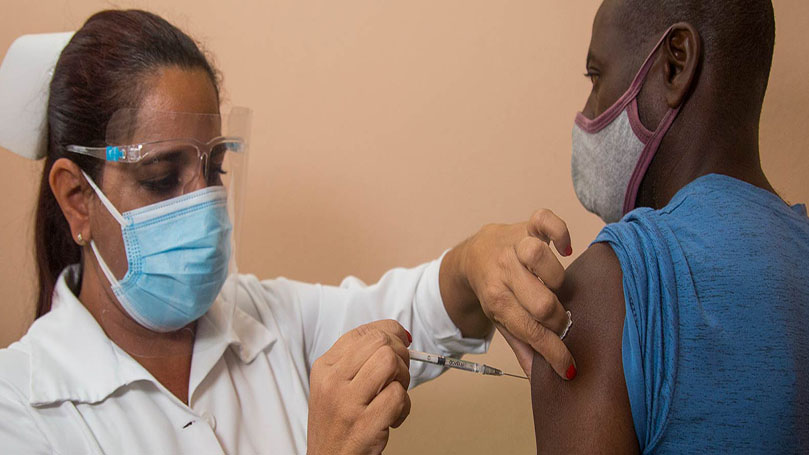
To assess the COVID-19–related impact of the U.S. blockade of Cuba, let’s take a short detour through history, starting with the Kennedy Administration’s disastrous response to the Cuban Revolution.
In the late 1950s and early 1960s, Cuban revolutionaries were able to dislodge the capitalist dictatorship of Fulgencio Batista and his deep ties to U.S. gangsters who were fleecing the Cubans of much-needed financial resources.
John and Robert Kennedy inheriting a muddled anti-Cuban program from the Eisenhower Administration and launched a disastrous attack on Cuban soil. The Cubans repulsed the CIA-backed attack. This ill-conceived adventurism, designed first under Eisenhower and carried out under the Kennedys, failed to mobilize the Cuban peasantry to oust the Castro brothers.
At this point, President Kennedy appointed his brother, Robert, as U.S. Attorney General to find a way to remove the Castros from power. Their efforts to remove Castro or kill him were ludicrous, murderous, and constant.
But these weren’t the first attempts to bring Cuba to its knees in obeisance to its more powerful northern antagonist. The Eisenhower administration initiated a blockade against the Cuban Batista regime; there could be no challenge to American hegemony from any corner of Central or South America. This hemisphere belonged solely to the U.S. and its imperialist interests.
In 1960 Castro moved to nationalize all foreign industry in Cuba while raising taxes on U.S. interests. Even worse from the U.S. point of view, was his establishment of close ties with the USSR. Eisenhower responded by freezing all Cuban assets in the U.S., cutting imports from Cuba, and ending relations with the island nation.
Ever since Eisenhower in 1960, U.S. presidents have kept the embargo in place; even while occasionally talking about relaxing it, they continued to strengthened the bans on trade. The most criminal crackdowns came from Presidents Reagan and Trump.
Not only has the U.S. banned our own companies, but also banned their foreign subsidiaries from doing business with the Cubans. While Cuba can trade with businesses in other countries, those businesses and governments are reluctant to jeopardize relations with the U.S. and lose lucrative interaction with American companies. Over time, U.S. governments have made it plain to international finance in foreign nations that they risk losing business with U.S. corporations if they extend credit to Cuba.
All of this remains in place to strangle Cuba, bring it to its knees, and force it to abandon medical and radical politics.
Obama relaxed sanctions against Cuba, not in a dramatic sense, but in a symbolic manner that would begin to let the U.S. electorate know that time for a change in Cuban relations was not merely possible but in the interest of both countries and Central and South America.
When Trump became president, serving the ruling class, he reinstated the sanctions on Cuba that Obama relaxed. He even extended some of the restrictions against the Cuban government and economy. So far, President Biden has done nothing to roll back the Trump sanctions.
The blockade and COVID-19
The World Health Organization provides, as of July 26, 2021, a snapshot of what the virus has visited upon the Cubans: 8,853 new virus cases, 332,000 confirmed cases, and 2,351 deaths.
Cuban doctors volunteer to travel throughout the world, providing medical care where needed. Cuba has entered into agreements with foreign governments in South America and Africa to provide, when possible, mutual medical aid.
This kind of mutual medical aid would be beneficial between the U.S. and Cuba. But Trump would not consider it, even though such cooperation between our two countries could have prevented much suffering and saved thousands of lives. The Trump administration even actively worked against these agreements to further isolate Cuba from the world community and disrupt their excellent health care.
Trump’s reinstatement of U.S. travel restrictions between Cuba and the U.S. has damaged the Cuban economy and created additional poverty and unrest.
The U.S. has pressured foreign governments and businesses not to engage in commerce with Cuba. Many companies have been dissuaded from delivering goods to Cuban ports, as the U.S. threatens to ban their ships from U.S. ports. These bans, of course, interrupt much-needed goods and medical supplies to the Cubans.
Over the last several years, U.S. sanctions on Cuba have resulted in a tightening of money spent on free medical care. While medical care is still of very high quality, adult males and the elderly have restricted access to that care.
The continuing blockade of Cuba is both criminal and inhumane. And 184 nations agree: in June, they voted at the United Nations to condemn it. When the world is desperately trying to combat a new, more deadly coronavirus, the U.S. continues the same criminal sanctions of Trump and our ruling class under Biden.
We have much for which to answer.
If you wish to donate to the syringes for Cuba campaign, click here.
Image: Global Health Partners.


 Join Now
Join Now